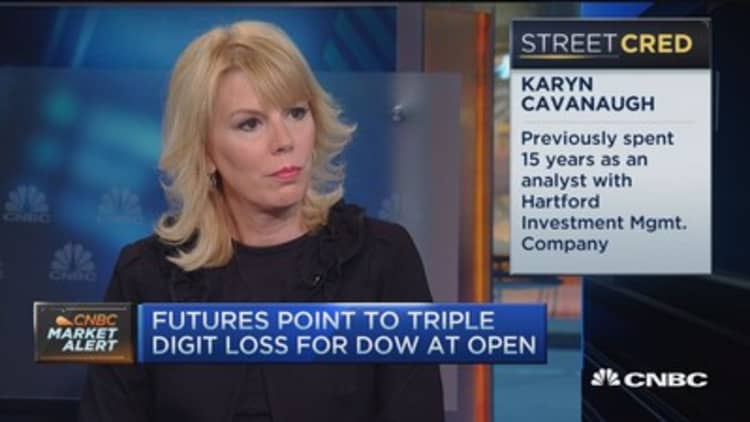
The recent selloff in bonds is a sign that market extremes are fading as fears of deflation and stagnation recede, JPMorgan Chase's chief economist said Tuesday.
The first quarter of 2015 was the weakest for global growth in the expansion, but investors are now seeing inflation tick up and commodity prices rebound, Bruce Kasman said.
"I think what's happening is we're normalizing. We got to extremes in terms of pricing in bonds and fixed income," he said on CNBC's "Squawk Box." "I think we're just unwinding those extremes."
Benchmark U.S. 10-year Treasury yields were at 2.2618 percent on Tuesday, up from 2.15 percent late on Friday. Thirty-year bond yields were at 3.0227 percent, up from 2.90 percent.
Continuing weakness in German government bonds dragged U.S. Treasury yields higher. German bund yields have spiked in the past week and a half as a rebound in oil prices led some investors to re-evaluate expectations that inflation will stay low. Crowded positioning, with most of the market having bet on continued German bond strength, added to the pace of the sell-off once it began.
Rising inflation is the clearest sign of normalizing outcomes, Kasman said.
"Inflation was almost zero globally in the first quarter. It's going to be 3 percent sequentially in the second quarter," he said. "Commodity prices are moving up. We're starting to see some wage pressures in the countries that are more advanced."
—Reuters contributed to this report.


